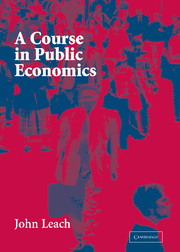Asymmetric Information and Efficiency
Published online by Cambridge University Press: 06 July 2010
Summary
The consensus among art experts is that a number of the Van Goghs hanging in prestigious galleries around the world are forgeries. There is less agreement as to which paintings are the forgeries and which are genuine. Some experts question the authenticity of Garden at Auvers. The French government had once considered this painting to be so important that, in 1992, it declared the painting to be an historic monument to prevent its sale to a foreigner. When the painting was last offered for sale, in 1996, concerns over its authenticity were so great that it failed to find a buyer. Other experts question Sunflowers, which was purchased by a Japanese company in 1987 for $39.9 million (U.S. dollars), at that time the highest price ever paid for a work of art. Also under suspicion are the “self-portraits” hanging in the Gemeentenmuseum in the Hague, the Van Gogh Museum in Amsterdam, and the Metropolitan Museum in New York. The number of possible forgeries is currently estimated to be about 100.
Some of these paintings reached their privileged positions in innocent ways. They are copies of real Van Goghs made by art students, or paintings in the style of Van Gogh done by competent hobbyists. They were incorrectly attributed to Van Gogh at some time, and the attribution stuck.
- Type
- Chapter
- Information
- A Course in Public Economics , pp. 289 - 292Publisher: Cambridge University PressPrint publication year: 2003



